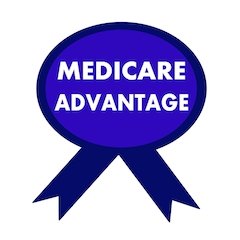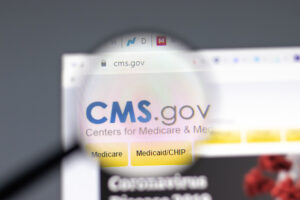Research shows most older Americans don’t shop around for Medicare plans—and further research shows that means they’re likely missing out on savings.
MedicareGuide surveyed over 2,280 Americans 65+ to gauge shopping trends as this year’s Open Enrollment Period comes to an end Dec. 7.
The research shows that about two-thirds of the Medicare-aged population has yet to review their Medicare options and an even larger number, 88%, hadn’t changed their Medicare plan.
Among older Americans who reviewed their options but didn’t change plans, 67% said it was because they couldn’t find a better plan.
Seeking dental, vision, hearing coverage
Among older Americans who reviewed their options, the largest percentage, 15%, wanted a plan covering dental, vision, and hearing services.
The second largest number, 13%, wanted better drug coverage.
Of those who found a cheaper plan, most (85%) saved less than $50 a year.
Sticking with current plan
Few older Americans switched from Original Medicare to Medicare Advantage, and an even smaller number made the reverse move.
Just 11% switched from Original Medicare to Medicare Advantage.
The largest percentage of this group, 8%, cited better benefits.
Only 5% of older Americans switched from Medicare Advantage to Original Medicare.
Of those who did, the largest number, 3%, said it was for the ability to see any doctor.
Overall, 66% say they never changed Medicare plans.
The greatest number who did change, 18%, did so just once. Nine percent changed twice, and 4% changed three times.
“Historically, most beneficiaries don’t change plans, but coverage and cost can change significantly year to year, especially now because of Covid,” said Jeff Smedsrud, the cofounder of MedicareGuide’s parent company HealthCare.com. “It is becoming easier to use online tools to review your plan and find potential savings. It pays to shop around.”
Meanwhile, 85% of older Americans didn’t change their prescription drug plan.
The largest percentage who did, 9%, said it was due to price.
Of those enrolling in Medicare, the largest number of respondents, 30%, enrolled themselves online.
Explore the full survey results and methodology.
SEE ALSO:














Good!
I am not sure about this. Those are quotes from the survey findings but it seems to me there may be a problem in the way the researchers designed the survey or presented its results.
The second question and answer seems to suggest a statement like:
I changed my Medicare plan this year because I didn't review my Medicare options.
That doesn't make a great deal of sense to me.
It seems to me that the survey really says that almost nine in ten older Americans did not review their Medicare plans, so any conclusions one wants to draw from the survey would be based on reasons for change provided by approximately one in ten of those surveyed.
If you want to extend from that 10%, around 2/3 of those who did review plan options found no reasons for change. If 2/3 of those who did not bother to check their plan options would also find no reason for change, then the amount of older americans missing savings might not be as significant as the dramatic survey headline suggests.
Today, I spoke to a man on a Humana Part D plan that is increasing from $72.50 to $86.20. He takes no meds.
The article is based on the KFF survey. I would say at least 25% of my new clients are shocked when I say "estimate $30 per month for Part D" and respond with "but my mom is paying more than $100". I do a ton of parent reviews for clients. One of the reasons my retention is so high and how I get new clients is that I do an annual drug review.
Think of the 90 year old lady in Matador, TX. Think she is checking her drug plan???
:laugh:
The reviews I did are probably not going to result in any changes this year for others besides me, but after seeing them, I'm pretty sure my wife will be checking hers when she is 90.
Too many hoops on the dementia patient in relation to plan changes-and compared to the cost of home care — $300-$400 change in PDP premium for the year is pretty trivial.
Her parents could probably save at least $300 per year each with a switch to the Humana WalMart plan but they don't want to change. (At least they have been moved to the camp of knowing their options this year.)
(And the next time I complain about a $5-$8 a month increase in my HDF plan, @DS4 is going to remind me about his PDP client who was already paying more per month for his PDP than I pay for my HDF and the client then had an additional $14 a month increase in the PDP premium. :laugh:)
You have found my secret to Medicare supplemental sucess. Please dont share online.
I am so glad that i don't have to do drug reviews for my MA book of business every year – that would be a nightmare.The medical benefits may change a little ( lately mostly for the good) but the usually very good drug component of mapd plans are very stable .